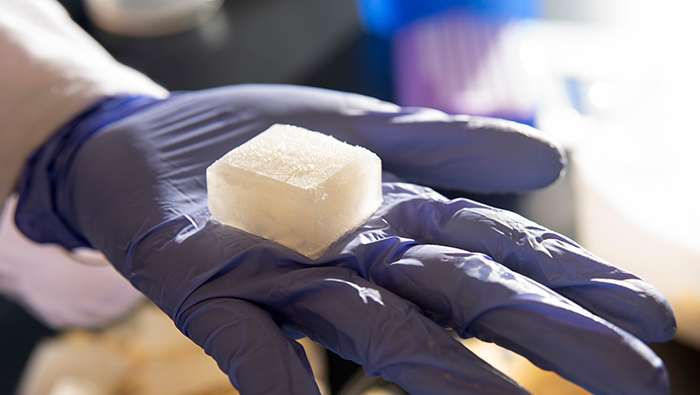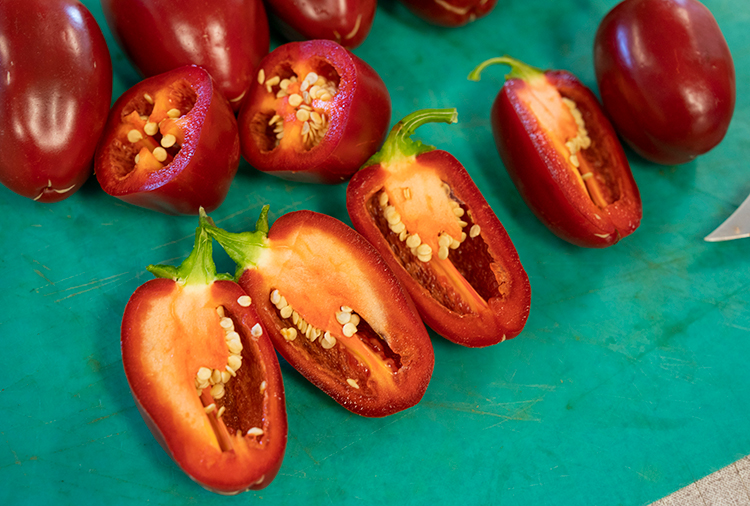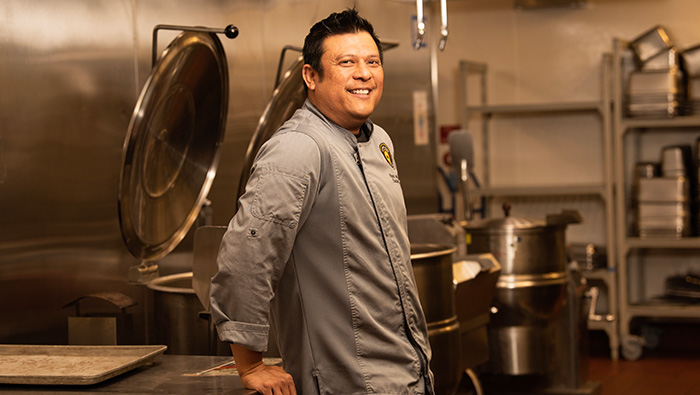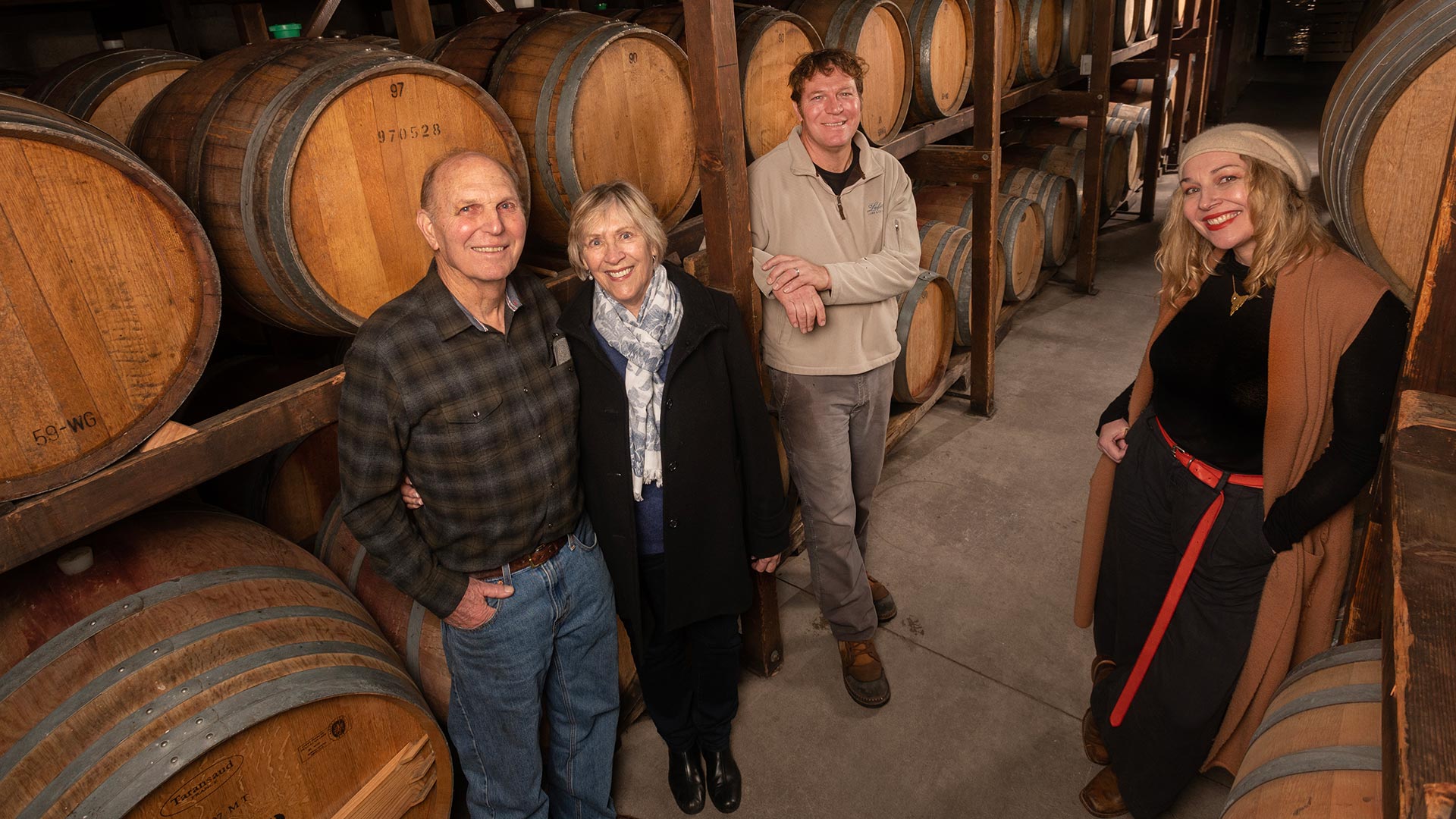
UC Davis researchers have developed a new cooling cube to cut down on cross-contamination. It won’t melt, is compostable and is plastic-free. (Gregory Urquiaga/UC Davis)
Cool Food, Cool Technology
Researchers at UC Davis are developing new food and new ways to keep food cool — including new varieties of organic jalapeño peppers and beans, and a new type of plastic-free “jelly ice cube” that doesn’t melt.
The new cooling cubes could revolutionize how food is kept cold and shipped fresh without relying on ice or traditional cooling packs such as the kind often found in subscription meal delivery services. The cubes are gelatin-based hydrogels that are 90% water. Other components help maintain their structure. The technology was invented to keep food safe.
“It’s antimicrobial, so it won’t get moldy after multiple uses and [because] it doesn’t generate melting water it will save water and prevent cross-contamination,” said Luxin Wang, an associate professor in the Department of Food Science and Technology. The idea came to her after she saw the amount of ice used at fish-processing plants and its potential for spreading harmful bacteria.
The jelly ice cubes remain frozen for 13 hours and can then be rinsed, refrozen and reused. They’re also flexible and compostable. A patent for the design and concept was filed in July 2021. Jiahan Zou, Ph.D. graduate student who has worked on the project the past two years, said they would eventually want to use agricultural waste or byproducts to make the ice even more sustainable. The U.S. Department of Agriculture National Institute of Food and Agriculture awarded a grant for the research.

Cavity of jalapeño popper pepper. (Hector Amezcua/UC Davis)
Cool food designed to pop
Student researchers are also breeding new varieties of food. Ten years ago, UC Davis students launched a project to breed a pepper with the taste and texture of a jalapeño, but with an enlarged cavity like a bell pepper. Why? It allows much more room to stuff with cheese to truly elevate the popular appetizer jalepeño poppers.
The pepper breeding project helped launch the Student Collaborative Organic Plant Breeding Education program, or SCOPE, which brings students and faculty together for field-based plant breeding to develop new varieties of crops at the organic student farm.
“It’s been 10 generations since the initial cross of our jalapeño popper line and it’s been six generations for our other bell pepper breeding lines,” said Laura Roser, a UC Davis graduate and current junior specialist for SCOPE. “These two lines are essentially ready to release as a variety at this point.” She said she wants to send seeds from these lines to different seed companies and hopes they will agree to sell them in 2022 or 2023.
In 2020, the breeding program also released six new varieties of organic beans that proved to be sustainable, high-yielding and disease-resistant. The release has been a success, with several local bean growers taking interest in the new varieties.
With contributions from Emily C. Dooley and Tiffany Dobbyn









